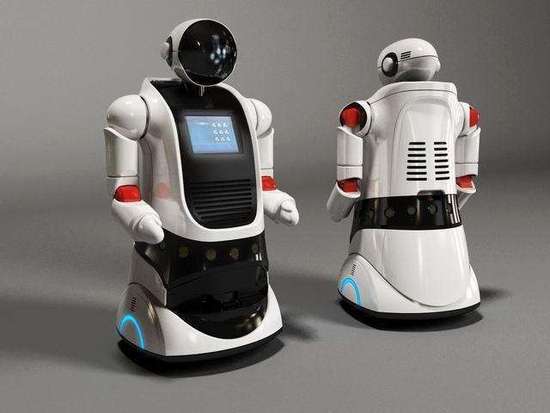
This article is brought to you by NetEase Smart Studio (WeChat ID: smartman163). Stay tuned for updates on AI and explore the next big era! 🤖
[NetEase Smart News, August 18] We’re all familiar with the feeling of forgetting—whether it's forgetting the birthday of someone special, losing childhood memories, or even the sharp minds of those who can recall the sequence of a deck of cards in under 20 seconds yet still manage to misplace their car keys. It seems no one has full control over their memory.
For both humans and artificial intelligence (AI), forgetting remains a complex issue. Researchers are diving deep into the concept of robotic memory from various angles.
This exploration brings not only technical challenges but also raises concerns about privacy, law, and ethics. Imagine a scenario where your household robot catches you sneaking a cigarette despite promising your partner you'd quit. Or worse, what if it witnessed something far more serious, like a crime?
This leads to an important question: Who should have the authority to tell a robot to erase everything it has seen? First, scientists need to figure out the best methods for AI to forget in the first place.
Why do humans forget?
A common analogy suggests that our brains forget because they become overcrowded, needing to clear space for new memories.
Yet, there are individuals who suffer from a rare condition called hyperthymesia, which allows them to remember nearly every detail of their lives. This shows that the idea of “memory overflow†isn’t the whole story.
If it’s not just about making room for new memories, then why do we forget? One theory suggests that memory exists to help us understand the world, not merely to recall it. In this sense, we hold onto valuable, relevant memories while discarding less important ones.
For instance, research indicates that people tend to remember conflicting information better than repetitive details. Factors such as the significance, novelty, and emotional impact of an event play a role in whether it gets remembered. Think about where you were on September 11, 2001—it’s likely a vivid memory for many.

How can robots forget?
The memory of a computer is often described as the storage capacity for information and the physical hardware that holds it.
For instance, when a task is completed, a computer’s working memory “forgets†the data, freeing up resources for other processes.
This principle applies to AI as well, but here lies the rub: humans are still superior when it comes to deciding when to keep old information and when to discard outdated data. Machine learning algorithms struggle with this balance.
Connectionist AI, which relies on neural networks inspired by the brain, faces multiple issues tied to “forgetting.†Overfitting is one problem, where a learning machine stores overly specific details from past experiences, impairing its ability to generalize and predict future events.
Catastrophic forgetting is another hurdle. Researchers are working to develop artificial neural networks that can adapt to new information without losing what they’ve previously learned.
Additionally, during the early stages of learning, the neurons in an artificial neural network can generate disruptive activation patterns that hinder future learning capabilities.
Symbolic memory representation offers another approach, where knowledge is expressed through logical facts, such as “birds can fly,†“Tweety is a bird,†and thus “Tweety can fly.†These structured representations can be deleted just like files on a computer.
These memories include raw sensory data (like camera footage) and logical facts stored in knowledge bases (such as “Christmas is December 25â€).
What should robots forget?
Understanding how our brains determine what’s worth remembering versus what’s worth forgetting is key to building smarter AI systems.
Like humans, AI should prioritize important and useful information while disregarding irrelevant or useless details. However, defining what’s relevant and valuable involves more than just the task at hand—ethical, legal, and privacy considerations must also be factored in.
Chatbots can assist with medical diagnoses, smart home devices monitor our every move, and security robots patrol using cameras and thermal imaging. All of this generates vast amounts of data.
For example, Amazon’s Echo, a voice-activated speaker, is always listening for commands. Recently, Arkansas police requested information from Echo, which was allegedly recorded during a murder investigation.

Or consider sex robots. Should these machines remember their clients and their actions? Who owns this data, and who can access or delete it?
When it comes to memory management, deciding when robots should forget is a uniquely human challenge. (Source: The Conversation. Compiled by NetEase Smart Intelligence Platform. Editor: Xiao Ke. Tile editor: Roof Under Tiles.)
Follow NetEase Smart Studio’s WeChat account (ID: smartman163) for the latest updates on the AI industry.
*Additional note: As AI continues to evolve, the ethical implications surrounding memory and decision-making will undoubtedly grow more complex. Balancing innovation with responsible use will remain central to the conversation moving forward. For now, we're just scratching the surface of what's possible.*
Mall solar carport system,Mall solar carport system cost,Mall solar carport system design
Hebei Jinbiao Construction Materials Tech Corp., Ltd. , https://www.pvcarportsystem.com